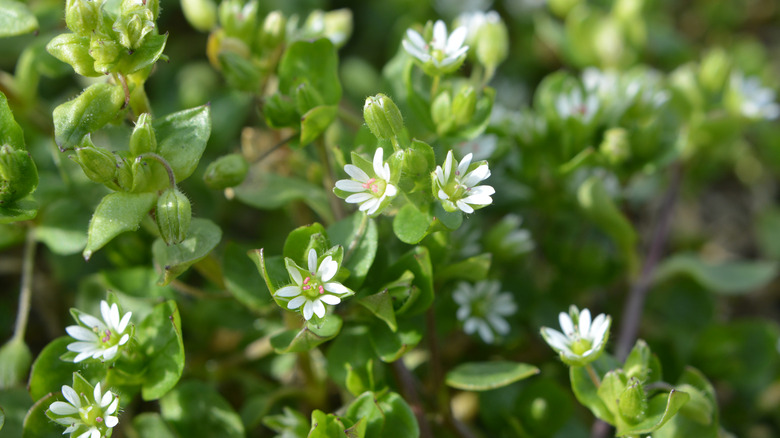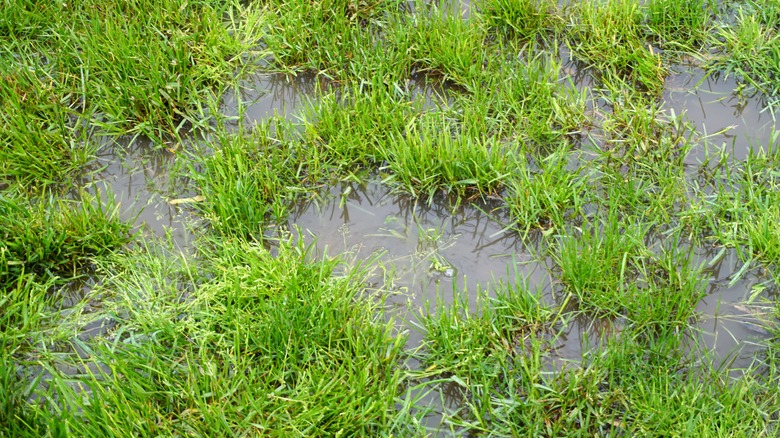Mistakes Everyone Makes When Getting Rid Of Chickweed
Chickweed (Stellaria media) is a pesky cool-weather annual weed that emerges at the end of summer, matures as cold weather arrives, and then spreads through seeding. Once it seeds, the cycle is guaranteed to continue next year. That's because a single chickweed plant is capable of producing 25,000 seeds per plant on average. These seeds overwinter in the soil even as their parent plants die off at the end of the fall. Then next year, the seeds can germinate anytime between spring and early fall, and chickweed seedlings will plague your lawns once again. Fortunately, there are several mechanical, chemical, and cultural control methods that can help you get rid of the weeds in your garden and prevent them from reproducing. But even if you're approaching a chickweed infestation with effective control methods, there are mistakes you can make that will give these weeds an upper hand in their quest to dominate your lawn.
One of the simplest, but highly consequential mistakes you can make is to overwater your lawn — this error creates ideal conditions for chickweed to grow. Another omission is not giving your lawn proper care. If your turf is weak, it's less likely to compete against the encroaching chickweeds. Conversely, a healthy lawn can help keep the weeds at bay. Finally, using unsuitable herbicides, or applying them at the wrong time can not only prove futile in your mission to eradicate chickweed, but also damage your lawn or garden plants. Below, we walk you through each of these common weeding mistakes in greater detail.
Avoid these errors to prevail in your fight against chickweed
First things first, avoid making the mistake of overwatering your lawn. You might think that the additional water will help your grass leave dormancy and resume growth. However, the excess water will also produce the conditions chickweed needs to thrive. That's because chickweed flourishes in wet soil. Instead of irrigating your lawn frequently, give the turf thorough, less frequent soakings. Doing so will not only deny chickweed its preferred growing environment, but also help your lawn stay healthy.
Speaking of which, failing to maintain your turf's health is another grave error that gives chickweed an unfair advantage as it attempts to spread through your yard. A densely growing, vibrant lawn is a solid line of defense against chickweed. Strong grass easily outcompetes chickweed seedlings when they emerge, so they never get a chance to mature. Growing regionally suitable grass species, mowing, fertilizing, and irrigating the lawn properly are all crucial steps if you want a healthy lawn that leaves chickweeds no chance to become established.
If you resort to chemical control options, don't make the mistake of treating your chickweed with the wrong herbicide, or doing so at the wrong time. Using the wrong chemicals or applying them improperly is a waste of your time and resources — one that may endanger beneficial plants in the vicinity. Post-emergent herbicides with ingredients like fluroxypyr, dicamba, and MCPP work best for controlling chickweed. The best time to apply these chemicals is when the weeds are still small and before cold weather sets in. Be sure to follow the manufacturer's instructions when using chemical herbicides to control chickweed.

